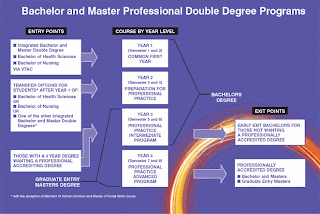Curriculum Structure
The curriculum is organized into three tiers or levels, each with a different purpose.
Tier I
Courses at this level provide essential knowledge and skills (scientific and cultural information, writing skills, college-level mathematics, and information literacy). Mastery of this material lays a foundation for success in upper levels of the curriculum.
Tier II
These courses provide introductions and some choices for more advanced work in the various scholarly disciplines, from the arts and humanities and social sciences to the biological and physical sciences. Tier II courses help students build their breadth of knowledge.
Tier III
The Tier III course is the only required upper-division component of General Education. The intent of this requirement is to ensure that students have the basic skills of lifelong learners, allowing them to conduct research and construct knowledge in a discipline apart from their major field of study.
Requirement Categories
World Civilizations: 6 hours [Gen Ed 110 and 111 or upper division coursework] substitutes for transfer students with more than 60 hours.
Communications Proficiency: 6 hours, including at least 3 in written communications
Mathematics Proficiency: a minimum of 3 hours
Arts and Humanities and Social Sciences: 9 hours total, with at least 3 hours in each category
Intercultural Studies: 3 hours
Sciences: a total of 10 hours with at least 3 each in both biological and physical sciences, and including at least 1 credit hour of laboratory sessions.
Tier III: the only upper-division requirement in General Education, 3 hours
American Diversity: 3 hours [a course satisfying this requirement can be selected from one of the other requirement categories].
General Education, PO Box 644519, Washington State University, Pullman WA 99164-4519, 509-335-5699, Conta



 12:31 AM
12:31 AM
 consulting education
consulting education




 Posted in:
Posted in: 









0 comments:
Post a Comment